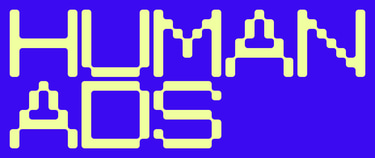QUEER AND NIGERIAN: LGBTQ+ INFLUENCERS
Guest post by Shirin Giordano
Influencer Law Clinic series
12/4/20213 min read
The intersection of identity and the territory where one lives has had great effect on the lives of queer people living in countries where their own existence is disrespected, rejected or even criminalised.
The situation in Nigeria is especially critical for the well-being of LGBTQ+ folks as after the entry into force of the Same-Sex Marriage Prohibition Bill in 2014, marriage, cohabitation or even just public show of a same sex-relationship, “directly or indirectly”, are prohibited and could lead to up to 14 years imprisonment. The practical implications of this law are however much broader, as it effectively manages to criminalise LGBTQ+ people on the basis of sexual orientation and identity. Subsequent to the adoption of this legislative act, numerous human rights groups have expressed concern about its consequences on the lives of people [1].
The unwelcoming atmosphere of the streets of Nigerian cities has led to the creation of safe spaces by and for queer people. Access to such spaces is however greatly monitored and exclusive, as the risk of someone who has malicious intentions entering them is high. This has been proven by several cases of invasion of police going undercover or breaking and entering followed by assault and battery [2].
The growing and expanding social media presence of young queer people is an important counter-movement to the atmosphere of non-acceptance which characterises countries such as Nigeria and has helped to move online celebrations of identity and self-expression.
Sabelo Mlangeni, a photographer who focused on understanding how social media has shaped celebrity culture in Lagos, has captured life in a safehouse in the city, called the House of Allure, where he lived together with Nigerian queer influencers. His work on the collection of moments in the House is now part of an exhibition in London [3].
Rashidi Williams, a gay rights activist in Nigeria, has said in an interview that the consequence of the Same-Sex Marriage Prohibition Bill would be that LGBTQ+ people in Nigeria would either leave the country and seek asylum or “go underground”, but he would personally not be willing to compromise the voice he has found and go “underground” [4]. Another example of people who have chosen to not hide and still proudly live their queer identities are two Nigerian influencers who document their lives and their experiences. One of them is Matthew Blaise (@matthew.blaise) who in October 2020 marched through the streets of Lagos loudly chanting “queer lives matter” and has since kept using their platform to bring visibility to the lives of queer Nigerians. They use their platform as a safe space where frank and honest conversations about mental and sexual health are the norm. Much of the focus of discussion is on the effects of European colonialism on the destabilisation of the African region and also how this has influenced African queer evolution [5]. Amara (@the_amarion) is a lesbian Nigerian woman who uses her platform to share moments of her life with her partner, Olayinka, and tell stories about her life as a queer person. The rawness of her narrative is reflected in her content, such as an emotional video where she captures a conversation with her unaccepting mother. Her confidence in her identity allows to normalise people and types of relationships which are often very limited or completely lacking in representation and humanises such complex experiences.
Therefore, the question is whether online content which could be perceived as potentially criminal under the laws of a specific country should be banned on social media platforms. The ability to use the internet to create a space which is absent in your lived experiences and reality is one of the fundamental pillars of social media platforms which led to their increasing popularisation. This is rooted in the fact that you can be anyone online, and if that someone happens to be the truest form of self, that should be equally allowed and given space. The laws of morality must then hold more weight on the scale of moderation of content online than laws which are deeply rooted in conservatism and discrimination.
[1] Isaack W, ‘“Tell Me Where I Can Be Safe”’ (Human Rights Watch, 2016) <https://www.hrw.org/report/2016/10/20/tell-me-where-i-can-be-safe/impact-nigerias-same-sex-marriage-prohibition-act> accessed 26 November 2021
[2] Access to Good Health Initiative (AGHI), The Initiative for Equal Rights in Nigeria (TIERS), Initiative for the Advancement of Humanity (IAH), International Center for the Advocacy of the Right to Health (ICARH), Women’s Health and Equal Rights Initiative (WHER), Trans and Intersex People for Human Rights in Nigeria (THRIN), Hope Alive Health Awareness Initiative (HAHAI) and Synergía – Initiatives for Human Rights (Synergía), “Human Rights Situation for Lesbian, Gay, Bisexual and Transgender (LGBT) Persons and Sexual Rights in Nigeria”, pp.31, (UN Human Rights Committee, 2019)<https://tbinternet.ohchr.org/Treaties/CCPR/Shared%20Documents/NGA/INT_CCPR_CSS_NGA_35448_E.pdf> accessed 26 November 2021
[3] Dinsdale E, ‘Sabelo Mlangeni’S Moving Photos Of Life Inside A Nigerian Queer Safe House’ (Dazed, 2020) <https://www.dazeddigital.com/art-photography/article/50535/1/sabelo-mlangeni-house-of-allure-photographs-life-inside-nigerian-queer-safehouse> accessed 26 November 2021
[4] Oladipo T, ‘Inside Nigeria’s Secret Gay Club’ (BBC News, 2013) <https://www.bbc.com/news/world-africa-20887170> accessed 26 November 2021
[5] Okundaye J, ‘Vote For Matthew Blaise On The #Dazed100’ (Dazed) <https://www.dazeddigital.com/projects/article/53050/1/matthew-blaise-internet-biography-dazed-100-2021-profile> accessed 26 November 2021
